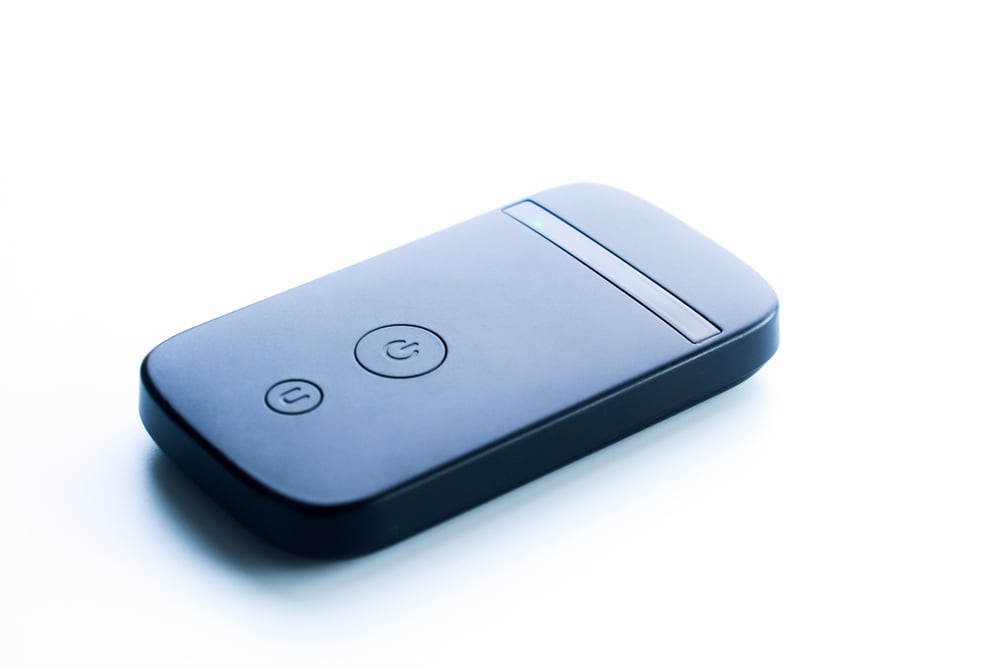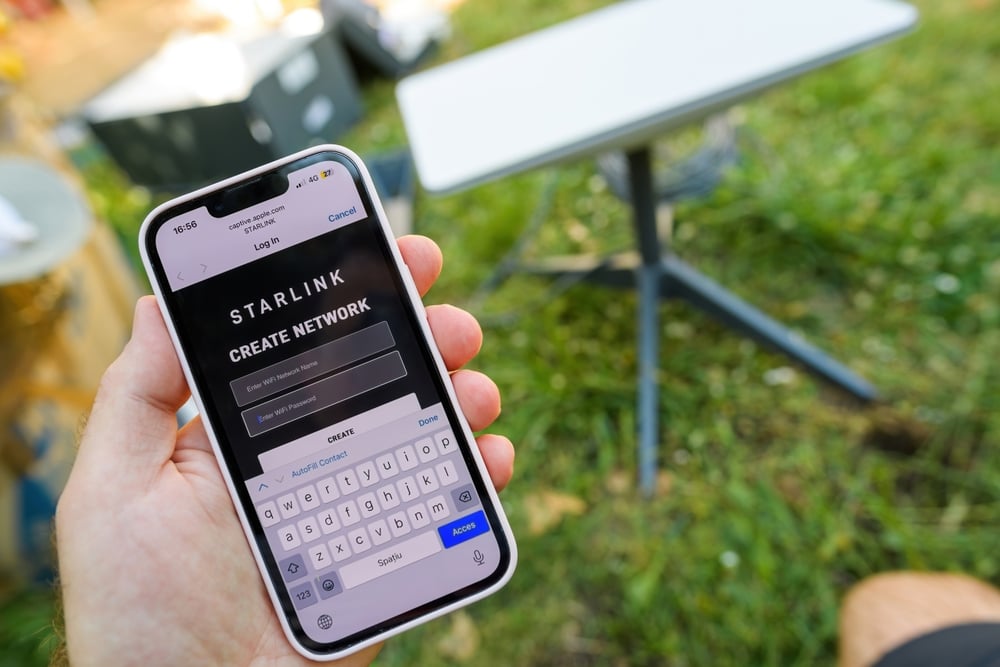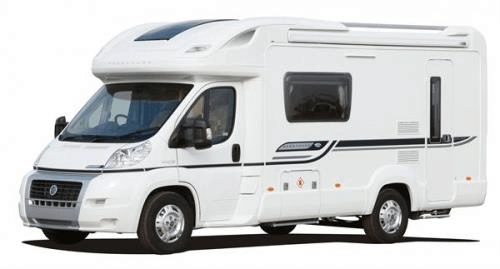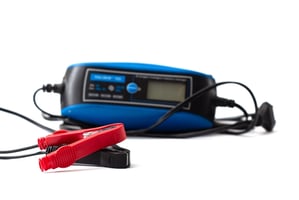Your motorhome’s dashboard (or instrument) cluster consists of the set of gauges and warning lights...
When you’re travelling off-grid in your motorhome, staying connected to the internet can sometimes be a bit of a challenge, especially in the UK’s more remote corners; whether you’re parked up in the Highlands or exploring the Norfolk coast, internet access can be patchy at best. Fortunately, there are now several reliable ways to get online from the comfort of your motorhome, whether you need the internet for work, streaming or navigation - or simply for staying in touch with loved ones.
Before looking at the options, it’s worth clearing up a common source of confusion: WiFi and the internet aren’t the same thing! WiFi is simply the way your device connects wirelessly to something that provides an internet connection, such as your phone, a router or a cafe or campsite’s network. The internet itself is the vast network of online data and services you actually use, from websites and emails to streaming platforms. In other words, and to use a travelling metaphor, WiFi is the ‘road’, and the internet is the ‘destination’. You can have a WiFi signal without internet access (for example, if your router isn’t connected to mobile data or satellite), and therefore it’s the underlying connection that really matters when travelling off-grid.

What are the options?
The most common and practical starting point for motorhome users is mobile data. Using the 4G or 5G network is by far the easiest way to get connected, and it’s available through data-only SIM cards that can be used in your phone, a MiFi device, or a dedicated motorhome router.
Options such as the IQ Go SIM are designed specifically for mobile or motorhome use, staying active all year and allowing you to add data bolt-ons only when you need them, which can keep costs down. Just check with the company how often you have to use them in the UK within a set time period, and also if you can use them for roaming outside of the EU if travelling further afield.
Routers are ideal for those who travel frequently, and they often have external antennas to boost reception, too. Vehicle-specific WiFi systems such as the Maxview Roam and Roam X are built for caravans and motorhomes, with roof-mounted antennas and 4×4 MIMO support for excellent reception even in rural spots. These systems are available in both 4G and 5G versions and are well-suited to touring life. The company website states that the 4X4 can increase 5G/4G speeds by up to 100% compared to a typical 2X2 MIMO antenna when coupled with a suitable router, which is good to know.
If you regularly travel through rural or coastal areas where the mobile signal is weaker, a multi-network SIM can help. Companies such as Broadband Go offer SIMs that automatically switch between networks like EE, O2, Vodafone and Three to pick the strongest signal available. When choosing a plan, it’s important to think about how much data you’ll need. Streaming videos, for example, can quickly eat through your allowance - Maxview estimates that around 40 GB per month would cover roughly an hour of video per day, although that then needs to double if watching in HD. For the best results, pair your SIM with a good-quality router and external antenna rather than simply tethering your phone, as this setup will provide a stronger, more stable connection inside your vehicle.
Hotspotting
That said, using your mobile phone as a hotspot can be a quick and convenient way to get online, especially if you’re only travelling for a short time or only need the internet occasionally. Most modern phones allow you to share your mobile data connection with other devices, such as laptops or tablets, by creating a personal WiFi hotspot. It’s simple to set up and works well when you have a strong 4G or 5G signal. The main downside is that using your phone as a hotspot can drain its battery quickly and cause it to overheat during long sessions, and it can also slow your connection if multiple devices are connected all at once. Some networks also restrict tethering or cap the amount of data you can share, so it’s worth checking your plan before relying on this option.
MiFi devices are small, portable units that use a SIM card and a data plan to create a WiFi hotspot using a mobile network, via a battery. They’re similar to traditional routers but are smaller and don’t need to be plugged in.
You can also use a USB dongle to connect your device to the internet via a mobile network.

Satellite
For those travelling to very remote areas of the UK, satellite internet is the next, big step. Services like Starlink are certainly transforming how off-grid motorhomers stay online! Starlink’s ‘Roam' plans are designed for mobile use, with the unlimited plan currently priced at £96 per month. The required hardware includes a compact dish and router, and all that’s needed is a clear view of the sky. If you look at the Starlink website, it even states that the process only requires two actions: ‘Step one - plug it in, step two - point at sky’ - you can’t get more simple than that!
Satellite internet offers excellent speeds and reliability where mobile networks can’t reach, but the setup does require more power, so make sure your leisure battery or solar setup can handle the extra load. It’s also worth securely mounting the dish so that it can be packed away safely during travel.
In reality, many motorhome owners find that a hybrid approach works best. You can use mobile data as your primary connection for everyday browsing, streaming, and navigation, and then switch to satellite when you’re in a signal black spot. Some advanced routers can even switch automatically between mobile and satellite networks. If you are on a campsite their WiFi is also worth checking out, though you might find it’s often slower and not always available outside of the main buildings. Having multiple connection options means you’ll be covered in almost every situation.

Different packages with different prices…
A range of purpose-built gear is available in the UK to support these sorts of setups. These prices will likely fluctuate, but hopefully they’ll give you a rough idea as of now (November 2025).
The Maxview Roam systems cost from c.£359 to £900, depending on whether you want 5G or added extras such as terrestrial TV. For those leaning towards satellite connectivity, the Starlink Mini Satellite Antenna and Router Kit offers a compact and more affordable option at around £159, while the full-size Starlink Standard kit is roughly £299 and provides even better performance for those who often stay in remote spots. You then need to pay the monthly plan costs, too.
On the router side, devices are available from many UK retailers such as Amazon and are popular with regular tourers - prices for decent ones are anywhere from £300 to £400 plus.

Choosing the right setup depends on how you use your motorhome. If you mostly stay at UK campsites or within areas with reasonable mobile coverage, a solid 4G or 5G router with a strong antenna will be more than enough. For travellers who like to explore remote areas, combining mobile data with a satellite backup will provide reliability wherever you go. Those who rely on the internet for work or need guaranteed connectivity in all conditions will likely benefit from investing in a Starlink system, though you’ll need to manage power carefully - solar may be your friend here.
Obviously, your budget and data usage also come into play. If you’re watching your spending, you can keep costs down by managing your data more carefully - for example, downloading entertainment before you travel, using offline maps and apps, and limiting your video streaming. For many people, mobile data remains the best balance of cost, convenience and speed, especially when paired with the right hardware.







